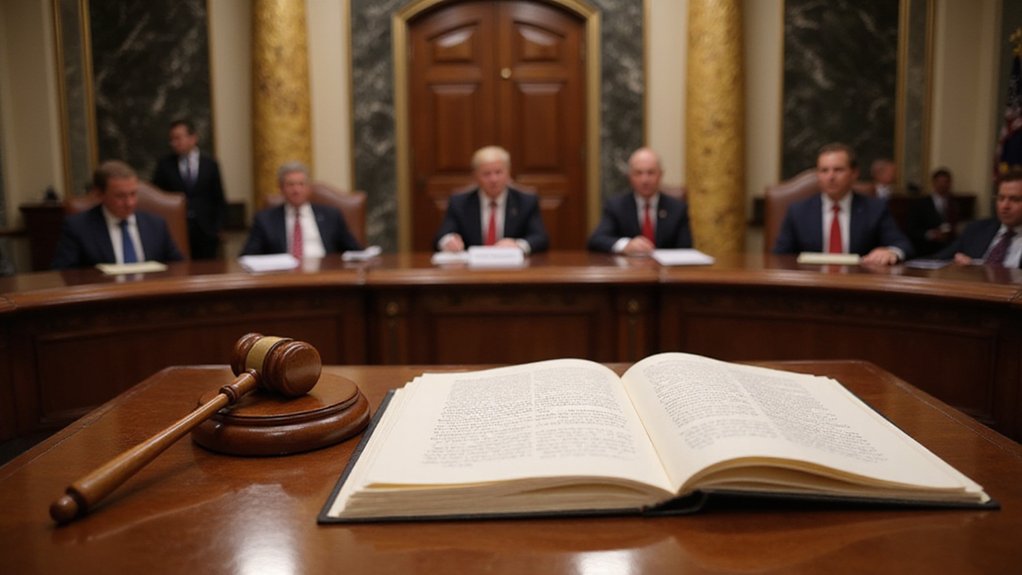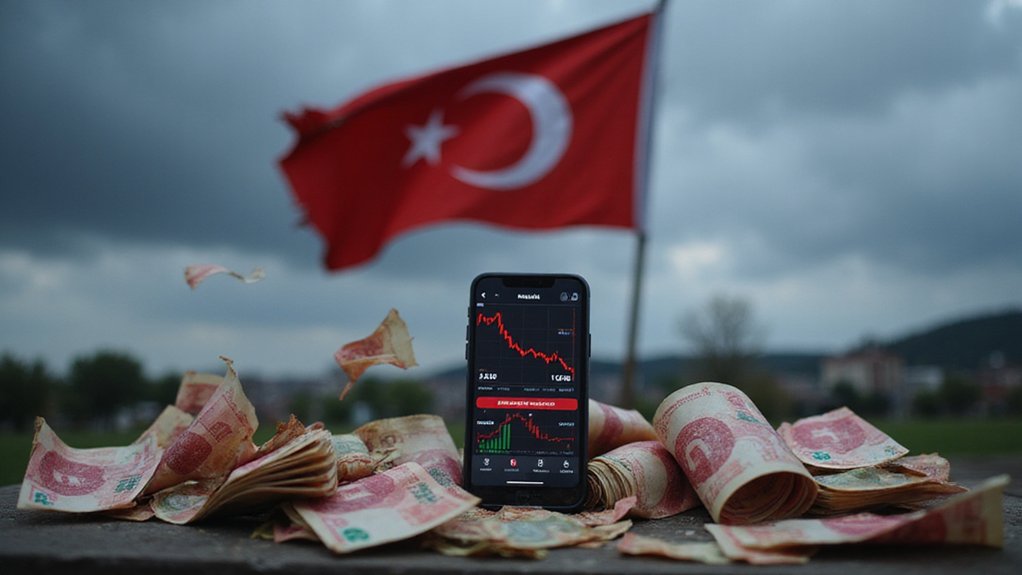The crypto industry and Senate lawmakers have locked horns over the scope of DeFi exemptions in proposed federal legislation, with billions in protocol value hanging in the balance of regulatory definitions that could determine whether decentralized finance remains genuinely decentralized or becomes another heavily regulated financial sector.
The Digital Asset Market Structure Bill and its predecessor FIT21 attempt to untangle the regulatory Gordian knot by assigning primary oversight of digital commodities like Bitcoin to the CFTC while reserving securities-related activities for the SEC. This jurisdictional division, seemingly straightforward on paper, becomes considerably murkier when applied to DeFi protocols that blur traditional financial boundaries with algorithmic precision.
What appears elegantly simple in legislative text becomes bewilderingly complex when autonomous protocols defy traditional regulatory categories.
Draft legislation codifies exemptions for activities that avoid custody or discretionary control of customer assets—software development, blockchain validation through consensus mechanisms, and providing non-custodial user interfaces. The exemptions ostensibly protect core DeFi infrastructure from registration requirements that could transform autonomous protocols into compliance-heavy intermediaries.
Yet crypto giants argue these carve-outs remain insufficiently broad, leaving protocol operators maneuvering through treacherous regulatory gray zones where a misinterpreted smart contract function could trigger onerous registration demands. Smart contract vulnerabilities can expose protocols to both technical exploits and regulatory misinterpretation that compounds operational risks.
Industry stakeholders emphasize the critical distinction between software providers and actual custodians, arguing that regulatory overreach could stifle the innovation that makes DeFi genuinely revolutionary rather than traditional finance with extra steps. Senate bills propose limiting exemptions to activities lacking custody or discretionary control, but determining where algorithmic automation ends and discretionary control begins presents challenges that would perplex even Solomon.
The fundamental tension centers on how extensively intermediary definitions will be applied to DeFi operations. While both CFTC and SEC retain antifraud enforcement authority regardless of exemption status, the scope of registration requirements could determine whether protocols operate as intended—autonomously and permissionlessly—or become traditional financial institutions masquerading as decentralized alternatives.
House committees advance bills while Senate Banking Committee prepares mid-2025 hearings, suggesting this regulatory chess match will continue well into the new legislative session. The current draft establishes a statutory safe harbor for self-custody wallets to prevent future regulatory overreach by Treasury agencies. Digital commodity issuers will face semi-annual reporting requirements similar to those under Regulation A, adding compliance costs that could impact smaller protocol developers. The outcome will likely establish whether DeFi achieves regulatory clarity that enhances market stability and competitiveness, or becomes another cautionary tale of innovation constrained by definitional disputes over what constitutes genuine decentralization.









